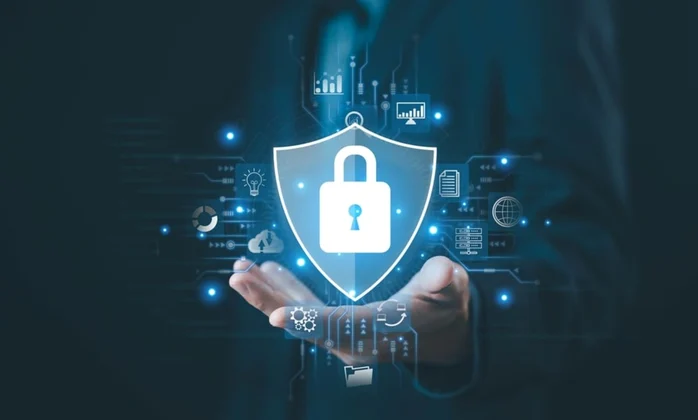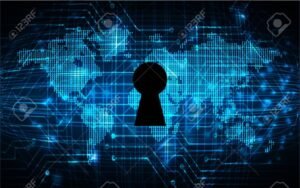In today’s hyper-connected world, cybersecurity is crucial for all internet users. With the rise of online banking, social media, cloud storage, and remote working Personal and financial data are more vulnerable than ever, making it essential for users to be aware of cybercriminals who target the public with phishing, malware, identity theft, and data breaches. Cybersecurity awareness and proactivity are crucial. Fortunately, cybersecurity is manageable. By following a few simple steps, you can significantly reduce the risk and keep your digital life safe. Every user should follow these ten cybersecurity rules to protect their data, privacy, and peace of mind in the digital age.
Use Strong and Unique Passwords
The first line of defense against hackers is your password. Reused or weak passwords are the leading cause of account hacks. Cyber experts recommend creating secure and unique passwords for every account, using upper- and lowercase letters, numbers, and symbols. Avoid using passwords based on birth dates, nicknames, or “123456.” LastPass and 1Password can generate and securely store complex passwords, so you don’t have to remember them. Multi-factor authentication (MFA) requires verification codes or biometric credentials in addition to a password. Keep your online life secure by creating strong, unique passwords that you never share.
Enable Two-Factor Authentication (2FA)
Two-factor authentication is one of the simplest and most effective online security measures. Even if a thief gains access to your password, 2FA prevents access to your account without a second verification code or device confirmation. Popular services like Gmail, Facebook, and Instagram offer 2FA via SMS, authenticator apps, and security keys. Intercepting SMS-based verification codes makes Google Authenticator and Authy more secure. Enabling 2FA adds a few seconds to the login process, but it protects you from unauthorized access and identity theft.
Update Your Software and Devices
Software updates can be a hassle, but they can protect you. Outdated software can contain vulnerabilities that hackers can exploit. Operating systems, browsers, applications, and antivirus programs require regular updates to fix these vulnerabilities. Automatic updates prevent you from missing important security updates. The issue applies to computers, phones, tablets, and smart home devices. Hackers are constantly looking for unpatched systems because they are easier to hack. Regular updates protect, stabilize, and improve your systems. Staying up-to-date means staying secure.
Be Cautious with Emails and Links
Cybercriminals still steal personal information through phishing. Scammers send emails or text messages posing as banks, government agencies, or friends. They often use URLs or attachments loaded with malware to steal your login credentials. Never click on unknown links or download unexpected attachments. Carefully verify the sender’s address. Contact the relevant authorities to verify sensitive email requests. One of the best cybersecurity practices is to remain vigilant for unsolicited text messages.
Use Reliable Antivirus and Anti-Malware Software
No matter how well you protect yourself online, viruses, Trojans, and spyware can still infiltrate. A trustworthy antivirus program can protect your computer from malware. Top antivirus programs like Bitdefender, Norton, and Kaspersky offer real-time threat detection, safsafe browsing, and ransomware protection. Additionally, even free antivirus software like Windows Defender is constantly improving. Regular system scans, automatic updates, and careful browsing can improve your online security. Prevention is better than cure against cyber risks.
Protect your Wi-Fi
Securing your home Wi-Fi network is crucial because it connects all your devices. Always change your router password and use strong WPA3 encryption. Consider creating a guest network, and don’t share your Wi-Fi password. Disabling remote administration and changing your router’s firmware can improve security. However, public Wi-Fi carries risks: avoid accessing important accounts or making online payments. A VPN can encrypt your internet traffic and protect your data.
Back Up Your Data Regularly
D Data loss can occur due to hardware failures, ransomware attacks, or accidental deletions. Backups allow you to retrieve data without paying a ransom or losing valuable information. Experts recommend using both local (external hard drives) and cloud-based backups (Google Drive, Dropbox, OneDrive). Automated backups provide consistency and convenience. Recent backups can help prevent data loss in the event of a ransomware attack. Consider backups as your digital insurance policy: you may not require them initially, but you will appreciate their assistance in the event of a disaster.
Be Mindful of What You Share Online
Social media and online platforms encourage sharing too much personal information. Excessive information can lead to identity theft or social engineering. Cybercriminals can use your pet’s name, date of birth, or workplace to identify you. Be sure to adjust your privacy settings and limit the visibility of your posts. Avoid sharing sensitive personal information or real-time location updates. Remember: content on the internet is virtually impossible to delete. Protect your digital footprint as you would your personal space.
Use a VPN
A VPN encrypts your internet connection and hides your IP address and online activity. It protects your data from hackers when using public Wi-Fi. VPNs offer anonymity and bypass geo-restrictions on websites. NordVPN, ExpressVPN, and ProtonVPN are reliable and easy to use. Unfortunately, free VPNs collect and sell user data. By using a reliable VPN, you create a secure tunnel between your device and the internet, protecting your data.
Educate and Stay Informed
Cybersecurity evolves daily as new threats emerge. It’s good practice to stay informed about new scams, software vulnerabilities, and prevention methods. Subscribe to security forums, newsletters, and reputable cybersecurity blogs. Knowing about hackers can help you recognize threats before they strike. Sharing this information with family and friends can make the internet a safer place. Awareness is your best defense against cybercrime.
Conclusion
Now is the time for every internet user to prioritize cybersecurity. From password security to phishing fraud detection and software updates, every small step can improve your protection. T The internet is convenient and powerful, but it is only beneficial if used responsibly. Staying safe doesn’t require technical expertise; knowledge and basic precautions are crucial. We encourage you to take action now to safeguard your digital identity, as your data and privacy are more valuable online than gold. Stay smart, stay safe, and stay informed.
FAQs
1. Why should regular users care about cybersecurity?
Cybersecurity protects financial, personal, and online data from hackers. It prevents identity theft, data breaches, and financial loss.
2. What are the most common cybersecurity threats?
Phishing, malware, ransomware, and data breaches are common internet risks.
3. How often should I change my passwords?
Passwords for important services like banking and email should be updated every three to six months.
4. Is free antivirus software effective?
Premium antivirus software offers protection against ransomware, VPNs, and identity theft, while free antivirus software offers very limited protection.
5. How do I know if my computer has been hacked?
Pop-ups, slow performance, unauthorized logins, and unusual network activity can indicate a system compromise. Please conduct a full security scan at your earliest convenience.




